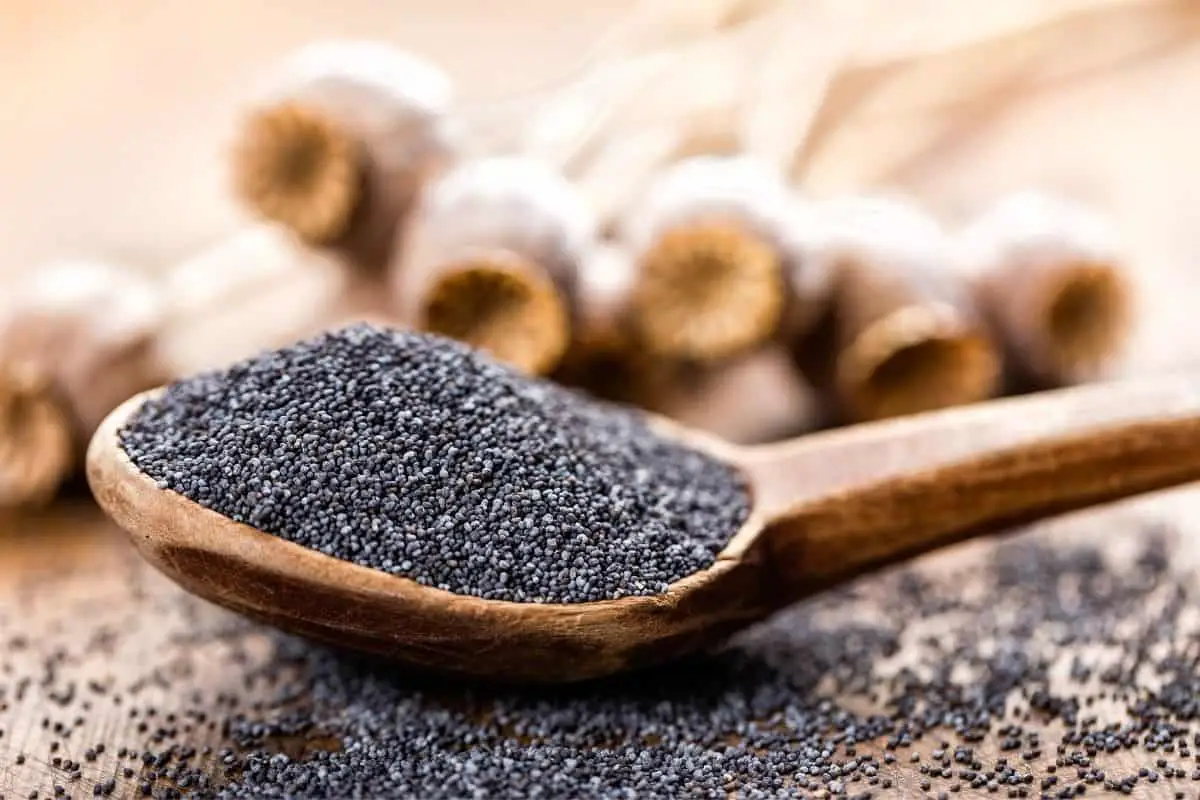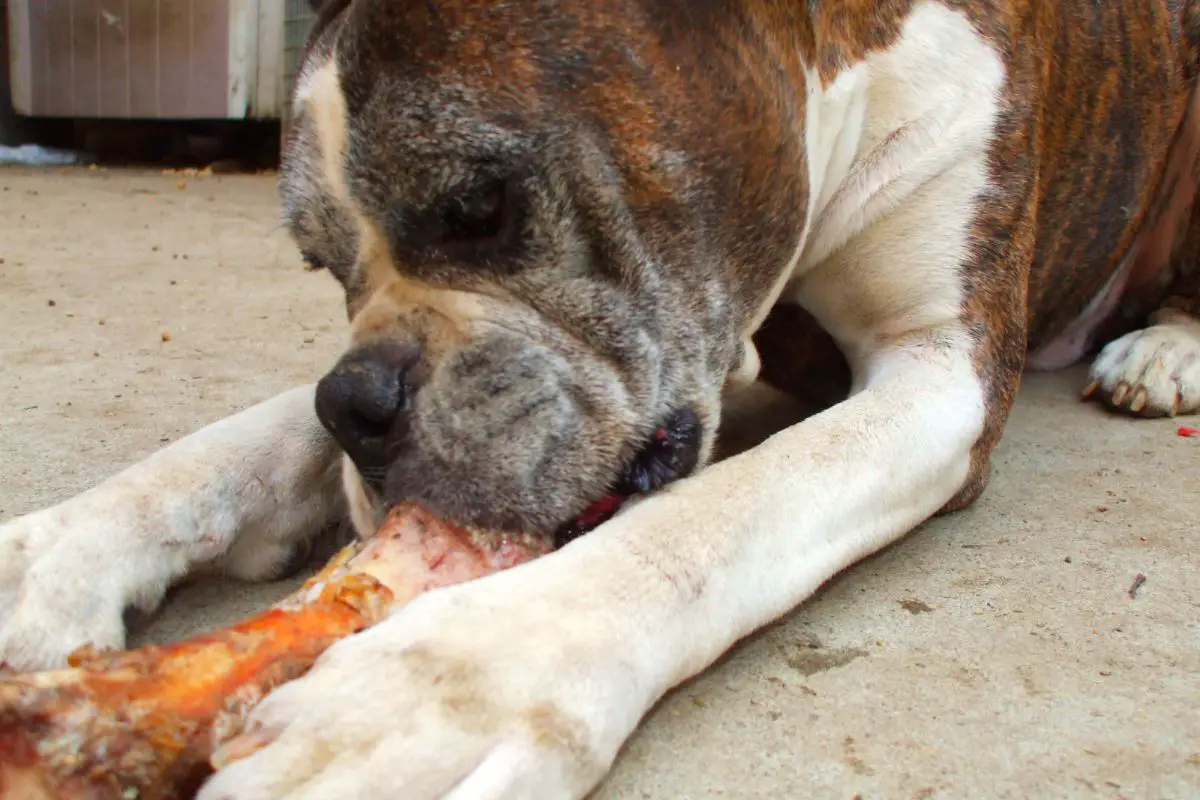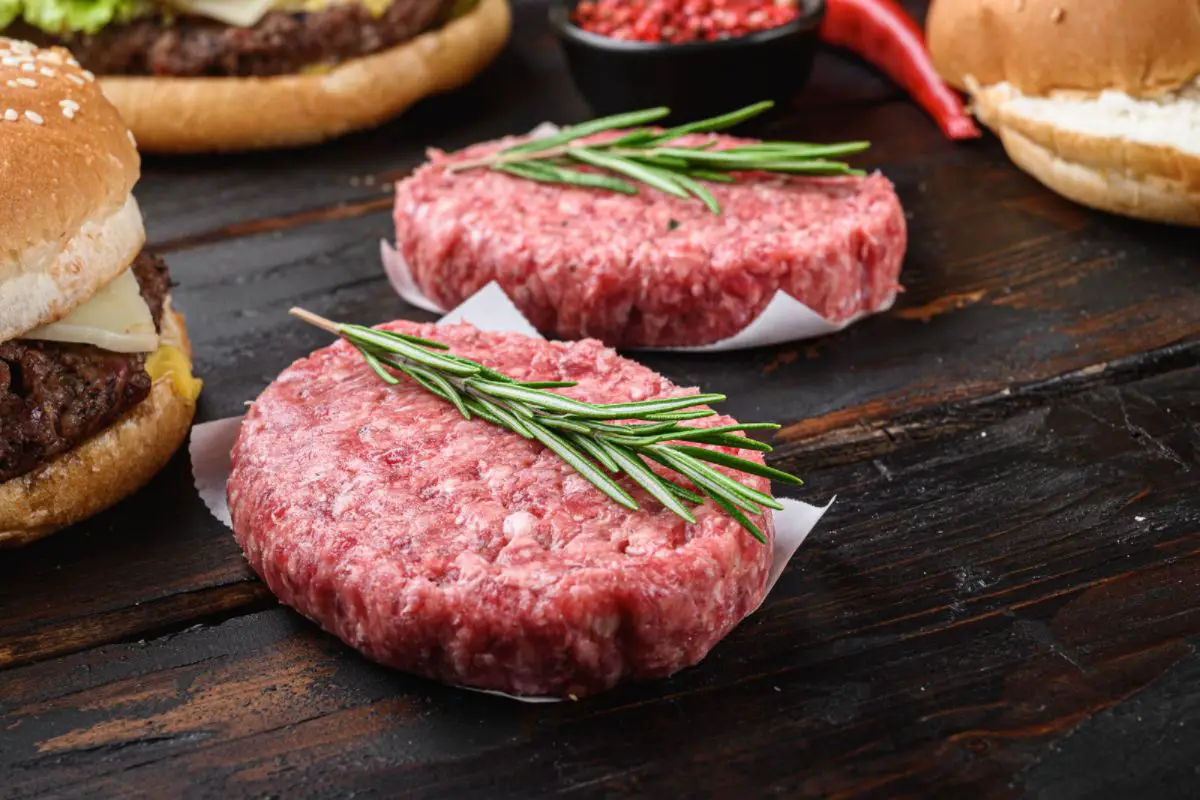This post contains affiliate links.
If you enjoy a nice piece of poppy seed bread or a freshly baked poppy seed muffin, you might wonder if it’s okay to give a bit to your dog as a treat. However, you should think twice before giving anything containing poppy seeds to your furry friend.
Dogs cannot eat poppy seeds. Poppy seeds contain opium alkaloids, which can give dogs poppy poisoning. Poppy poisoning can cause symptoms such as poor coordination, seizures, lowered breathing and heart rate, and lethargy or hyperactivity. In some cases, poppy poisoning can also be fatal.
Keep reading to find out more about why your dog can’t eat poppy seeds, what can happen if he does, and what you should do if you suspect your dog’s accidentally consumed poppy seeds.
Table of Contents
Are Poppy Seeds Harmful to Dogs?
Poppy seeds are harmful to dogs because they contain opium, which can lead to poppy poisoning. You should refrain from feeding dogs any foods that contain poppy seeds, such as buns, bagels, or bread.
Consuming poppy seeds are bad for dogs and can cause them a range of health problems.
Opium is found in opiates, such as the pain-relieving drug morphine. These drugs are commonly made from poppies but not from poppy seeds themselves. They are instead made from the latex found in the poppy’s unripe seed capsule.
However, these opium alkaloids can transfer to the poppy seeds in smaller amounts. The opioids in poppy seeds can sometimes be detected in a drug test, meaning that a person who has eaten too many of them can actually fail that drug test.
So, we already know that opioids can be bad news for humans. This is equally true for dogs. Poppy seeds can cause opioid poisoning (also commonly known as “poppy poisoning”). The amount of opiate alkaloids in a poppy varies depending on the species of poppy itself, but there are no poppy types of plants that are safe for dogs to eat.
The Whole Poppy Plant Is Bad for Dogs
It’s not just the poppy plant seeds that you need to worry about your dog eating, either. If your dog happens to come across a poppy plant, you should prevent him from eating any part of the flower.
This is because if he eats the flower of the poppy plant, he will be eating an incredibly large amount of poppy seeds all at once, much more than they would if they simply ate a slice of poppy seed bread. It also puts him at risk of eating the seed capsule itself, which is worse than the poppy seeds. Thankfully, poppies are quite uncommon around the world, so it is unlikely that you and your dog will come across any for him to eat by accident.
Other Added Ingredients Can Be Harmful, Too
It’s also a bad idea to give dogs anything that contains poppy seeds because chances are there are other ingredients in there that are bad for them too. For example, if you’re giving your dog a poppy seed muffin, ingredients like sugar are bad for a dog’s teeth and can cause obesity. If you are giving your dog poppy seed bread, you are exposing your dog to too many carbohydrates, and you may also find it has a gluten intolerance.
Does Cooking Remove the Toxicity of Poppy Seeds?
Some ingredients, such as cashews or kidney beans, are only dangerous if not cooked. Unfortunately, the same cannot be said about poppy seeds, especially when it comes to dogs eating them.
Studies have shown that cooking poppy seeds does not remove their toxicity. Cooking poppy seeds can reduce opium alkaloids in them, but not enough to make them safe for an animal. It doesn’t matter if your dog eats poppy seeds cooked in a muffin or uncooked in a dressing; they are still toxic.
What Are the Symptoms of Poppy Poisoning in Dogs?
Poppy poisoning can have an effect on the nervous system and brain function of a dog.
The symptoms of poppy poisoning in dogs are the following:
- Poor coordination. When your dog is walking, they seem like they are stumbling about
- Breathing troubles. This may include panting, wheezing, or breathing very slowly
- Your dog seems “zoned out” and doesn’t respond to its name being called or any interactions with you
- Your dog has pinpoint pupils (very tiny pupils) and seems to be staring at everything
- Your dog seems hyperactive for no reason
- A lowered heart rate
- Your dog has no appetite
- Your dog is not drinking any water
- Seizures
- Trembling or shivering
- Your dog is sleeping excessively, and it is difficult to wake them up
Your dog may display only one or two of these symptoms, or they may display most of them. It is important to identify any symptoms of poppy poisoning as quickly as possible. All of these symptoms should be considered serious.
Can a Dog Die From Poppy Poisoning?
A dog can die from poppy poisoning if he has consumed too much and is not treated immediately by a vet. Even small amounts of poppy can be detrimental to your dog’s health, which is why it’s vital to keep poppy out of reach and away from your dog.
It usually depends on both the size of your dog and the amount of poppy seeds he has eaten. A large dog is much less likely to die from poppy poisoning than a small dog is. Also, a dog that has eaten a large quantity of poppy seeds is more likely to die.
The metabolism of a dog is different from a human’s. A small amount of poppy seeds will not cause a problem for us, but they can cause serious problems for our pets. There is no specific amount of poppy seeds that is considered “deadly” for dogs. That means you should just keep dogs away from any amount of poppy seeds at all.
What Should I Do if My Dog Has Eaten Poppy Seeds?
If you suspect that your dog has eaten poppy seeds, it’s important to immediately take them to the vet. This is because poppy poisoning can be life-threatening. Other complications can also result from the symptoms, such as an injury due to seizures or dehydration from not eating or drinking.
When you take your dog to the vet, monitor his symptoms carefully. When you get to the vet, make sure you tell them that your dog has eaten poppy seeds and what symptoms he has been having.
Your vet will analyze your dog’s blood and urine to determine if there are any serious problems. There may also be a need for further testing like heart monitoring or an ultrasound.
The treatment for poppy poisoning depends on how badly your dog is suffering. Most of the time, the vet will induce vomiting and then administer fluids. After this, your dog will just need to rest and be monitored carefully. If there are more serious problems, such as heart trouble, they will have to remain at the veterinary surgery to be monitored.
Thankfully, the recovery time for a dog suffering from poppy poisoning is usually short if he has been taken to the vet quickly. A dog that hasn’t received any proper medical treatment for poppy poisoning is not guaranteed to make a full recovery and may have lifelong complications or even die.
It’s important to remember that prevention is the best cure when it comes to problems like poppy poisoning. Never feed your dog anything that contains poppy seeds, and always try to keep those products away from your pet.
Final Words
Poppy seeds may be a tasty addition to things like bagels or muffins, but they have a dark side. Keep them away from your dog; otherwise, he can face the serious problem of poppy poisoning.
Poppy poisoning is not always fatal, but it is certainly a very unpleasant experience for your dog. The symptoms of poppy poisoning can also cause your dog other complications. Remember that even a small amount of poppy seeds can be a big problem for a dog.
Related Articles
- Can Dogs Eat Prunes? Read this First!
- Can Dogs Eat Sauerkraut? (We Find Out)
- Can Dogs Eat Turnips? Here’s What the Expert Says
- Can Dogs Eat Watermelon? And What About the Seeds?
- Can Dogs Eat Black Eyed Peas (Is It Safe?)
- Can Dogs Eat Edamame? (We Find Out!)
Sources
- Mayo Clinic: What are Opioids and Why are They Dangerous?
- Spoiled Hounds: Can Dogs Eat Poppy Seeds? This is What You Need to Know
- Pet Poison Helpline: Poppy is Toxic to Dogs
- Wag Walking: Poppy Poisoning in Dogs
- Medical News Today: Can You Fail a Drug Test After Eating Poppy Seeds?
- Modern Farmer: 6 Secretly Poisonous Plants We Eat All the Time
- Science Daily: Heating Poppy Seeds, But Not Baking Them in Muffins, Reduces Opiate Levels
- Campaign Dog Academy: Can Dogs Eat Poppy Seeds?
Mrdogfood.com is a participant in the Amazon Services LLC Associates Program, an affiliate advertising program designed to provide a means for sites to earn advertising fees by advertising and linking to Amazon.com. We also participate in other affiliate programs which compensate us for referring traffic.





